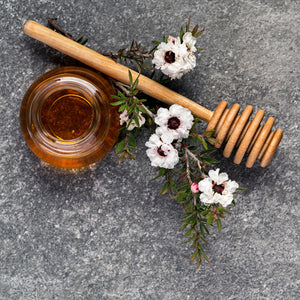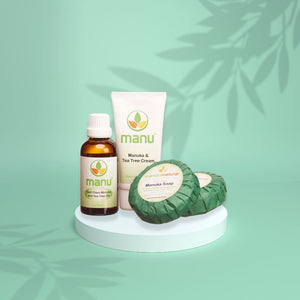Natural Shingles Treatment
A Sweet Way to Treat Shingles
If you're currently struggling with shingles, it is best to avoid the prescription drug route. Normally, physicians prescribe drugs to help treat herpes outbreaks, but oftentimes, medications are followed by adverse effects.
Natural strategies like applying honey on the affected area have proven to be effective against shingles, along with other herpes infections. This sweet food has been used as conventional treatment for infection up until the early 20th century, when penicillin was introduced.
However, not all types of honey are successful in suppressing infections. Some varieties have 100 times more potent antibacterial activity, while others contribute to the spread of microbes. I strongly advise you to avoid processed, refined honey found at most grocery stores, as it will only worsen your infection – whether consumed or applied topically.
On the other hand, raw honey has been approved for medical use because of its healing properties. High-quality raw honey is beneficial in treating wounds because it draws fluid away from the wound and has high sugar content that inhibits the growth of harmful microorganisms.
Bees also secrete a special enzyme called glucose oxidase, which causes honey to produce low levels of hydrogen peroxide when it comes into contact with your wound.
Manuka honey, a high-quality variety that originated from New Zealand, has all of these wound-healing properties, along with antimicrobial qualities. Clinical trials have found that Manuka honey, produced from the pollen gathered from flowers of the Manuka bush, can eliminate up to 250 strains of bacteria – including antibiotic-resistant ones like methicillin-resistant Staphylococcus aureus (MRSA).
I recommend applying Manuka honey in semifluid form directly to the affected area at least four times a day. The goal is to keep the sores constantly bathed in honey.



Leave a comment